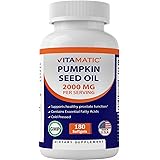For individuals who have engaged in long-term marijuana use, concerns about potential impacts on brain health are entirely valid. Many wonder if any damage incurred can actually be reversed. The expert perspective shared in the accompanying video provides significant reassurance, confirming that such healing is indeed possible. It is widely acknowledged that the brain possesses a remarkable capacity for recovery when provided with the optimal conditions for repair.
The journey toward restoring cognitive function and overall brain vitality often begins with a critical decision to cease cannabis use. Following this crucial step, a comprehensive approach to fostering a healing environment for the brain is often recommended. This involves a multifaceted strategy that addresses physical, nutritional, and mental well-being, demonstrating how neuroplasticity, the brain’s ability to reorganize itself, can be harnessed effectively. Observing dramatic turnarounds in a relatively short timeframe, sometimes within a matter of months, is a common occurrence in clinical practice.
Understanding Brain Healing After Marijuana Use
The human brain is an incredibly resilient organ, constantly adapting and changing in response to experiences and environment. This inherent adaptability, known as neuroplasticity, is the scientific basis for much of brain healing, even after periods of sustained substance use. While prolonged marijuana exposure can influence neurotransmitter systems and neuronal structures, the brain is not permanently fixed in its state. With the right support and consistent effort, these systems can often be rebalanced and regenerated, leading to significant improvements in cognitive function and overall mental well-being.
The process of neurological restoration involves several key biological mechanisms that are stimulated through healthy lifestyle choices. These mechanisms include the growth of new neurons, the strengthening of synaptic connections, and the repair of damaged brain cells. When the brain is no longer contending with the effects of cannabis, it can begin to allocate its resources more effectively towards self-repair. This allows for a natural detoxification process to occur, clearing away residual compounds and enabling a healthier functioning environment within the neural networks.
Key Pillars for Cannabis Brain Damage Reversal
Achieving significant marijuana brain recovery involves more than simply stopping use; it requires a proactive commitment to a brain-supportive lifestyle. The foundational elements highlighted by experts typically revolve around establishing a ‘healing environment.’ This comprehensive strategy addresses various aspects of daily living, each playing a vital role in stimulating and facilitating the brain’s natural restorative processes. Embracing these pillars systematically can dramatically accelerate the journey toward improved cognitive health and mental clarity, impacting both short-term and long-term well-being.
Optimizing Sleep for Cognitive Repair
Adequate and restorative sleep is perhaps one of the most critical components for brain health and recovery. During sleep, the brain actively works to consolidate memories, process information from the day, and clear out metabolic waste products through the glymphatic system. Chronic sleep deprivation, often associated with prolonged cannabis use, can impede these essential processes, exacerbating cognitive issues. Prioritizing 7-9 hours of quality sleep each night allows the brain to perform necessary repairs, regenerate cells, and rebalance neurotransmitter levels effectively, laying a strong foundation for neurological restoration.
Establishing a consistent sleep schedule and creating a conducive sleep environment can significantly enhance the brain’s healing capacity. This means going to bed and waking up at the same time daily, even on weekends, and ensuring the bedroom is dark, quiet, and cool. Avoiding screens before bed and limiting caffeine intake in the afternoon are also helpful practices. The profound impact of deep sleep on memory recall and emotional regulation cannot be overstated, making it an indispensable tool for anyone seeking to improve their brain health.
Nourishing the Brain Through Diet
What is consumed daily has a direct and profound impact on brain function and its ability to heal. A balanced, nutrient-dense diet provides the essential building blocks and energy needed for optimal cognitive processes. Focusing on whole, unprocessed foods rich in antioxidants, healthy fats, lean proteins, and complex carbohydrates is highly recommended. Berries, leafy greens, fatty fish (like salmon), nuts, and seeds are particularly beneficial due to their anti-inflammatory properties and high content of brain-supporting nutrients.
Eliminating processed foods, excessive sugars, and unhealthy fats can also reduce inflammation in the body and brain, which is crucial for neuronal health. The gut-brain axis, a bidirectional communication system, means that a healthy gut microbiome supports a healthy brain. Incorporating probiotics and prebiotics through fermented foods and fiber-rich vegetables can further enhance this connection. Proper hydration, achieved by drinking sufficient water throughout the day, is also vital for cellular function and nutrient transport within the brain.
The Power of Regular Physical Activity
Exercise is a potent stimulant for brain health, often considered a natural antidepressant and cognitive enhancer. Engaging in regular physical activity, even moderate levels, increases blood flow to the brain, delivering more oxygen and essential nutrients. This enhanced circulation also promotes the growth of new brain cells, a process known as neurogenesis, particularly in areas associated with memory and learning. Furthermore, exercise stimulates the release of brain-derived neurotrophic factor (BDNF), a protein that supports the survival of existing neurons and encourages the growth of new synapses.
Beyond its direct impact on brain structure and function, physical activity also helps to reduce stress and anxiety, common challenges during substance cessation. Endorphins released during exercise contribute to improved mood and a sense of well-being. Aiming for at least 30 minutes of moderate-intensity exercise most days of the week can be transformative. This commitment assists not only in physical health but also profoundly contributes to the overall process of marijuana brain recovery.
Targeted Nutritional Support: Vitamins and Omega-3s
While a healthy diet forms the foundation, specific nutritional supplements can offer targeted support for brain healing. A high-quality multiple vitamin is often recommended to ensure that the body receives a broad spectrum of essential micronutrients that might be lacking, especially if dietary habits have been inconsistent. These vitamins and minerals play crucial roles in countless biochemical reactions within the brain, from energy production to neurotransmitter synthesis.
Omega-3 fatty acids, particularly EPA and DHA, are vital for brain structure and function, comprising a significant portion of brain cell membranes. These healthy fats possess powerful anti-inflammatory properties and are crucial for optimal cognitive function, mood regulation, and neuronal communication. Supplementing with a high-quality fish oil can help replenish these essential fats, which are often deficient in modern diets. Additionally, optimizing vitamin D levels is increasingly recognized as important for brain health; vitamin D acts as a neurosteroid and influences mood, cognition, and neuroprotection.
Embracing a Brain-Loving Mindset
Beyond the physical and nutritional aspects, cultivating a positive and proactive mindset is indispensable for neurological restoration. The instruction to “start loving your brain” speaks to the importance of psychological well-being and active engagement in mental health practices. This involves reducing chronic stress, which can be detrimental to brain function and even reduce brain volume, through practices like mindfulness meditation, deep breathing exercises, and yoga. Developing new coping mechanisms for stressors, rather than reverting to old habits, is a fundamental step.
Actively challenging the brain with new learning experiences, such as acquiring a new skill, learning a language, or solving puzzles, can further enhance neuroplasticity. Social connection and engaging in meaningful activities also contribute significantly to cognitive vitality and emotional resilience. This holistic approach, encompassing mental and emotional care, works synergistically with physical and nutritional strategies to facilitate comprehensive marijuana brain recovery, fostering a healthier and more resilient mind.











